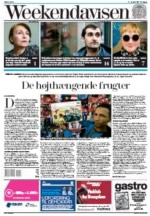 Assistant Professor Chelsea Schelly (SS) was interviewed by Dutch newspaper Weekendavisen about the social implications of 3D printing.
Assistant Professor Chelsea Schelly (SS) was interviewed by Dutch newspaper Weekendavisen about the social implications of 3D printing.
From Tech Today.
 Assistant Professor Chelsea Schelly (SS) was interviewed by Dutch newspaper Weekendavisen about the social implications of 3D printing.
Assistant Professor Chelsea Schelly (SS) was interviewed by Dutch newspaper Weekendavisen about the social implications of 3D printing.
From Tech Today.
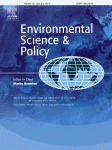 Adam Wellstead (SS) has published “Beyond the black box: Forest sector vulnerability assessments and adaptation to climate change in North America” in the journal Environmental Science and Policy Vol. 35, No. 3.
Adam Wellstead (SS) has published “Beyond the black box: Forest sector vulnerability assessments and adaptation to climate change in North America” in the journal Environmental Science and Policy Vol. 35, No. 3.
From Tech Today.
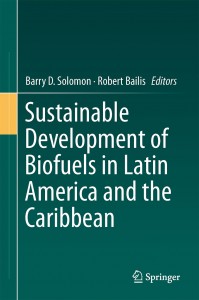 Professor Barry Solomon (SS) has published a new book, “Sustainable Development of Biofuels in Latin America and the Caribbean,” New York: Springer, 2013.
Professor Barry Solomon (SS) has published a new book, “Sustainable Development of Biofuels in Latin America and the Caribbean,” New York: Springer, 2013.
From Tech Today.
 Professor Barry Solomon (SS) along with Tapio Litmanen and Mika Kari (University of Jyväskylä) have published a paper, “The Utmost Ends of the Nuclear Fuel Cycle: Finnish Perceptions of the Risks of Uranium Mining and Nuclear Waste Management,” in Journal of Risk Research.
Professor Barry Solomon (SS) along with Tapio Litmanen and Mika Kari (University of Jyväskylä) have published a paper, “The Utmost Ends of the Nuclear Fuel Cycle: Finnish Perceptions of the Risks of Uranium Mining and Nuclear Waste Management,” in Journal of Risk Research.
From Tech Today.
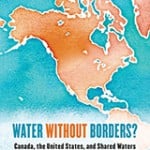 Emma S. Norman (SS and GLRC) just published the co-edited volume, Water without Borders? Canada, the United States and Shared Waters through University of Toronto Press.
Emma S. Norman (SS and GLRC) just published the co-edited volume, Water without Borders? Canada, the United States and Shared Waters through University of Toronto Press.
From Tech Today.
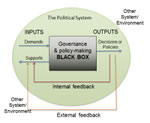 Adam Wellstead (SS) has published “The neglect of governance in forest sector vulnerability assessments: structural-functionalism and ‘black box’ problems in climate change adaptation planning,” in Ecology and Society 18(3): 23 (2013).http://www.ecologyandsociety.org/vol18/iss3/art23/
Adam Wellstead (SS) has published “The neglect of governance in forest sector vulnerability assessments: structural-functionalism and ‘black box’ problems in climate change adaptation planning,” in Ecology and Society 18(3): 23 (2013).http://www.ecologyandsociety.org/vol18/iss3/art23/
From Tech Today.
Jonathan Robins (SS) has published “Coercion and Resistance in the Colonial Market: Cotton in Britain’s African Empire,” in Jonathan Curry-Machado (ed.), Global Histories, Imperial Commodities, Local Interactions (Palgrave MacMillan, 2013).
From Tech Today.
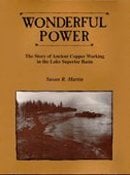
Digging for copper predates European settlers in the Keweenaw by 7,000 years
Susan Martin, retired professor from the Michigan Technological University Department of Social Science, has written a book about the use of copper by ancient people in the Lake Superior region.
She said the title of the book, “Wonderful Power,” was a term used by a 19th century Ojibwa man to describe copper.
Jo Urion, Keweenaw National Historical Park historian, said park officials work with tribal members whenever work is planned on properties that are eligible to be listed on the National Register of Historic Places, including archeological sites.
Jessica Koski, mining technical assistant for the Keweenaw Bay Indian Community, said copper has traditionally been an important part of Ojibway/Anishinaabe people of the Keweenaw, and it still is.
Read more at the Mining Gazette, by Kurt Hauglie.
 Professor Barry Solomon (SS) published a review of the book, “Crude Reality: Petroleum in World History” (Rowman & Littlefield, 2012) in e-International Relations, on July 18.
Professor Barry Solomon (SS) published a review of the book, “Crude Reality: Petroleum in World History” (Rowman & Littlefield, 2012) in e-International Relations, on July 18.
From Tech Today.
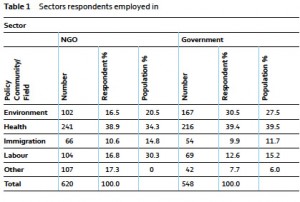 The article, “Policy Dialogue and Engagement between Non-Governmental Organizations and Government: A Survey of Processes and Instruments of Canadian Policy Workers,” written by Bryan Evans (Ryerson University) and Adam Wellstead was recently published in the Central European Journal of Public Policy. 7:1. 60-86.
The article, “Policy Dialogue and Engagement between Non-Governmental Organizations and Government: A Survey of Processes and Instruments of Canadian Policy Workers,” written by Bryan Evans (Ryerson University) and Adam Wellstead was recently published in the Central European Journal of Public Policy. 7:1. 60-86.
From Tech Today.